- Home
- Aharon Appelfeld
Tzili Page 3
Tzili Read online
Page 3
7
FROM THE FIRST DAY Tzili knew what was expected of her. She swept the floor and washed the dishes, she hurried to peel the potatoes. No work was too arduous for her. The months out of doors seemed to have taught her what it meant to serve others. She never left a job half done and she never got mixed up. And whenever it stopped raining she would take the skinny old cow out to graze.
Katerina lay in her bed wrapped in goat skins, coughing and sipping tea and vodka by turn. From time to time she rose and went to stand by the window. It was a poor house with a dilapidated stable beside it. And in the yard: a few pieces of wood, a gaping fence, and a neglected vegetable patch. These were the houses outside the village borders, where the lepers and the lunatics, the horse thieves and the prostitutes lived. For generations one had replaced the other here, without repairing the houses or cultivating the plots. The passing seasons would knead such places in their hands until they could not be told apart from abandoned forest clearings.
In the evening the softness would come back to her voice and she would speak again of the days in the city when she and Maria walked the streets together. What was left of all that now? She was here and they were there. In the city a thousand lights shone—and here she was surrounded by mud, madmen, and lepers.
Sometimes she put on one of her old dresses, made up her face, stood by the window, and announced: “Tomorrow I’m leaving. I’m sick of this. I’m only forty. A woman of forty isn’t ready for the rubbish dump yet. The Jews will take me as I am. They love me.”
Of course, these were hallucinations. Nobody came to take her away. Her cough gave her no rest, and every now and then she would wake the sleeping Tzili and command her: “Make me some tea. I’m dying.” At night, when a fit of coughing seized her, her face grew bitter and malign, and no one escaped the rough edge of her tongue, not even the Jews.
Once in a while an old customer appeared and breathed new life into the hut. Katerina would get dressed, make up her face, and douse herself with perfume. She liked the robust peasants, who clutched her round the waist and crushed her body to them. Her old voice would come back to her, very feminine. All of a sudden she would be transformed, laughing and joking, reminiscing about times gone by. And she would reprimand Tzili too, and instruct her: “That’s not the way to offer a man a drink. A man likes his vodka first, bread later.” Or: “Don’t cut the sausage so thin.”
But such evenings were few and far between. Katerina would wrap herself in blankets and whimper in a sick voice: “I’m cold. Why don’t you make the fire properly? The wood’s wet. This wetness is driving me out of my mind.”
Tzili learned that Katerina was a bold, hot-tempered woman. Knives and axes had no fears for her. At the sight of an unsheathed knife all her beauty burst forth. With drunks she was gentle, speaking to them in a tender and maternal voice.
Although their houses were far apart, Katerina was at daggers drawn with her neighbors. Once a day the leper would emerge from his house and curse Katerina, yelling at the top of his voice. And when he started walking toward her door, Katerina would rush out to meet him like a maddened dog. He was a big peasant, his body pink all over from the disease.
Winter came, and snow. Tzili went far into the forest to gather firewood. When she came back in the evening with a bundle of twigs on her shoulders bigger than she was, Katerina was still not satisfied. She would grumble: “I’m cold. Why didn’t you bring thicker branches? You’re spoiled. You need a good hiding. I took you in like a mother and you’re shirking your work. You’re like your mother. She only looked out for herself. I’m going to give you a good beating.”
Of Katerina’s plans for her Tzili had no inkling. Her life was one of labor, oblivion, and uncomprehending delight. She delighted in the hut, the faded feminine objects, and the scents that frequently filled the air. She even delighted in the emaciated cow.
From time to time Katerina gave her significant looks: “Your breasts are growing. But you’re still too skinny. You should eat more potatoes. How old are you? At your age I was already on the streets.” Or sometimes in a maternal voice: “Why don’t you comb your hair? People are coming and your hair’s not combed.”
Winter deepened and Katerina’s cough never left her for an instant. She drank vodka and boiling-hot tea, but the cough would not go away. From night to night it grew harsher. She would wake Tzili up and scold her: “Why don’t you bring me a glass of tea? Can’t you hear me coughing?” Tzili would tear herself out of her sleep and hasten to get Katerina a glass of tea.
It was a long winter and Katerina never stopped grumbling and cursing her sisters, her father, and all the seekers of her favors who had devoured her body. Her face grew haggard. She could no longer stand on her feet. There were no more visitors. The only ones who still came were drunk or crazy. At first she tried to pretend, but now it was no longer possible to hide her illness. The men fled from the house. Katerina accompanied their flight with curses. But the worst of her rage she spent on Tzili. From time to time she threw a plate or a pot at her. Tzili absorbed the blows in silence. Once Katerina said to her: “At your age I was already keeping my father.”
8
SPRING CAME and Katerina felt better. Tzili made up a bed for her outside the door. Now too she kept up a constant stream of abuse, but to Tzili she spoke mildly: “Why don’t you go and wash yourself? There’s a mirror in the house. Go and comb your hair.” And once she even offered her one of her scented creams. “A girl of your age should perfume her neck.”
Tzili worked without a break from morning to night. She ate whatever she could lay her hands on: bread, milk, and vegetables from the garden. Her day was full to overflowing. And at night she fell onto her bed like a sack.
No one came to ask for Katerina’s favors any more and her money ran out. Even the male nurse, who pulled out two of her teeth, failed to collect his due. Katerina would stand slumped in the doorway.
One evening she asked Tzili: “Have you ever been to bed with a man?”
“No.” Tzili shuddered.
“And don’t you feel the need? At your age,” said Katerina, with almost maternal tenderness, “I had already known many men. I was even married.”
“Did you have any children?” asked Tzili.
“I did, but I gave them away when they were babies.”
Tzili asked no more. Katerina’s face was angry and bitter. She realized that she shouldn’t have asked.
Summer came and there was no end to Katerina’s complaints. She would speak of her youth, of her lovers, of the city and of money. Now she hardened her heart toward her Jewish lovers too and abused them roundly. The accusations poured out of her in a vindictive stream, scrambled up with fantasies and wishes. Every now and then she would get up and hurl a plate across the room, and the walls would shake with the clatter and the curses. Tzili’s movements grew more and more confined, and the old fear came back to her.
From time to time Katerina would berate her: “At your age I was already keeping my father, and you …”
“What do you want me to do, mother?”
“Do you have to ask? I didn’t have to ask my father. I went to the city and sent him money every month. A daughter has to look after her parents. I let those guzzlers devour my body.”
Tzili’s heart was full of foreboding. She guessed that something bad was going to happen, but she didn’t know what. Her happiest hours were the ones she spent in the meadows grazing the cow. The air and light kneaded her limbs with a firm and gentle touch. From time to time she would take off her clothes and bathe in the river.
Katerina watched her with an eagle eye: “Your health is improving every day and I’m being eaten up with illness.” Her back was very bent, and without her front teeth her face had a ghoulish, nightmare look.
One evening an old client of Katerina’s came to call, a burly middle-aged peasant. Katerina was lying in bed.
“What’s the matter with you?” he asked in surprise.
&nb
sp; “I’m resting. Can’t a woman rest?”
“I just wanted to say hello,” he said, retreating to the door.
“Why not stay a while and have a drink?”
“I’ve already had more than enough.”
“Just one little drink.”
“Thanks. I just dropped in to say hello.”
Suddenly she raised herself on her elbows, smiled and said: “Why don’t you take the little lass to bed? You won’t be sorry.”
The peasant turned his head with a dull, slow movement, like an animal, and an embarrassed smile appeared on his lips.
“She may be small but she’s got plenty of flesh on her bones.” Katerina coaxed him. “You can take my word for it.”
Tzili was standing in the scullery. The words were quite clear. They sent a shiver down her spine.
“Come here,” commanded Katerina. “Show him your thighs.”
Tzili stood still.
“Pick up your dress,” commanded Katerina.
Tzili picked up her dress.
“You see, I wasn’t lying to you.”
The peasant dropped his eyes. He examined Tzili’s legs. “She’s too young,” he said.
“Don’t be a fool.”
Tzili stood holding her dress fearfully in her hands.
“I’ll come on Sunday,” said the peasant.
“She’s got breasts already, can’t you see?”
“I’ll come on Sunday,” repeated the peasant.
“Go then. You’re a fool. Any other man would jump at the chance.”
“I don’t feel like it today. I’ll come on Sunday.”
But he lingered in the doorway, measuring the little girl with his eyes, and for a moment he seemed about to drag her into the scullery. In the end he recovered himself and repeated: “I’ll come on Sunday.”
“You fool,” said Katerina with an offended air, as if she had offered him a tasty dish and he had refused to eat it. And to Tzili she said: “Don’t stand there like a lump of wood.”
Tzili dropped her dress.
For a moment longer Katerina surveyed the peasant with her bloodshot eyes. Then she picked up a wooden plate and threw it. The plate hit Tzili and she screamed. “What are you screaming about? At your age I was already keeping my father.”
The peasant hesitated no longer. He picked up his heels and ran.
Now Katerina gave her tongue free rein, abusing and cursing everyone, especially Maria. Tzili’s fears were concentrated on the sharp knife lying next to the bed. The knife sailed through the air and hit the door. Tzili fled.
9
THE NIGHT WAS full and starless. Tzili walked along the paths she now knew by heart. For some reason she kept close to the river. On either side, the cornfields stretched, broad and dark. “I’ll go on,” she said, without knowing what she was saying.
She had learned many things during the past year: how to launder clothes, wash dishes, offer a man a drink, collect firewood, and pasture a cow, but above all she had learned the virtues of the wind and the water. She knew the north wind and the cold river water. They had kneaded her from within. She had grown taller and her arms had grown strong. The further she walked from Katerina’s hut the more closely she felt her presence. As if she were still standing in the scullery. She felt no resentment toward her.
“I’ll go on,” she said, but her legs refused to move.
She remembered the long, cozy nights at Katerina’s. Katerina lying in bed and weaving fantasies about her youth in the city, parties and lovers. Her face calm and a smile on her lips. When she spoke about the Jews her smile narrowed and grew more modest, as if she were revealing some great secret. It seemed then as if she acquiesced in everything, even in the disease devouring her body. Such was life.
Sometimes too she would speak of her beliefs, her fear of God and his Messiah, and at these moments a strange light seemed to touch her face. Her mother and father she could not forgive. And once she even said: “Pardon me for not being able to forgive you.”
Tzili felt affection even for the old, used objects Katerina had collected over the years. Gilt powder boxes, bottles of eau de cologne, crumpled silk petticoats and dozens of lipsticks—these objects held an intimate kind of magic.
And she remembered too: “Have you ever been to bed with a man?”
“No.”
“And don’t you feel the need?”
Katerina’s face grew cunning and wanton.
And on one of the last days Katerina asked: “You won’t desert me?”
“No,” promised Tzili.
“Swear by our Lord Saviour.”
“I swear by our Lord Saviour.”
Of the extent to which she had been changed by the months with Katerina, Tzili was unaware. Her feet had thickened and she now walked surely over the hard ground. And she had learned something else too: there were men and there were women and between them there was an eternal enmity. Women could not survive save by cunning.
Sometimes she said to herself: I’ll go back to Katerina. She’ll forgive me. But when she turned around her legs froze. It was not the knife itself she feared but the glitter of the blade.
Summer was at its height, and there was no rain. She lived on the fruit growing wild on the riverbanks. Sometimes she approached a farmhouse.
“Who are you?”
“Maria’s daughter.”
Maria’s reputation had reached even these remote farmhouses. At the sound of her name, a look of loathing appeared on the faces of the farmers’ wives. Sometimes they said in astonishment: “You’re Maria’s daughter!” The farmers themselves were less severe: in their youth they had availed themselves freely of Maria’s favors, and in later years too they had occasionally climbed into her bed.
And one day, as she stood in a field, the old memory came back to confront her: her father lying on his sickbed, the sound of his sighs rending the air, her mother in the shop struggling with the violent peasants. Blanca as always, under the shadow of the impending examinations, a pile of books and papers on her table. And in the middle of the panic, the bustle, and the hysteria, the clear sound of her father’s voice: “Where’s Tzili?”
“Here I am.”
“Come here. What mark did you get in the arithmetic test?”
“I failed, father.”
“You failed again.”
“This time Blanca helped me.”
“And it didn’t do any good. What will become of you?”
“I don’t know.”
“You must try harder.”
Tzili shuddered at the clear vision that came to her in the middle of the field. For a moment she stood looking around her, and then she picked up her feet and began to run. Her panic-stricken flight blurred the vision and she fell spread-eagled onto the ground. The field stretched yellow-gray around her without a soul in sight.
“Katerina,” she said, “I’m coming back to you.” As soon as the words were out of her mouth she saw the burly peasant in front of her, examining her thighs as she lifted up her skirt. Now she was no longer afraid of him. She was afraid of the ancient sights pressing themselves upon her with a harsh kind of clarity.
10
IN THE AUTUMN she found shelter with an old couple. They lived in a poor hut far from everything.
“Who are you?” asked the peasant.
“Maria’s daughter.”
“That whore,” said his wife. “I don’t want her daughter in the house.”
“She’ll help us,” said the man.
“No bastard is going to bring us salvation,” grumbled the wife.
“Quiet, woman.” He cut her short.
And thus Tzili found a shelter. Unlike Katerina’s place, there were no luxuries here. The hut was composed of one long room containing a stove, a rough wooden table, and two benches. In the corner, a couple of stools. And above the stools a Madonna carved in oak, as simple as the work of a child.
It was a long, gray autumn, and on the monotonous plains everything
seemed made of mud and fog. Even the people seemed to be made of the same substance: rough and violent, their tongue that of the pitchfork and cattle prod. The wife would wake her while it was still dark and push her outside with grunts: go milk the cows, go take them to the meadow.
The long hours in the meadows were her own. Her imagination did not soar but the little she possessed warmed her like soft, pure wool. Katerina, of course. In this gray place her former life with Katerina seemed full of interest. Here there were only cows, cows and speechlessness. The man and his wife communicated in grunts. If they ran short of milk or wood for the fire, the wife never asked why but brandished the rope as a sign that something was amiss.
Here for the first time she felt the full strength of her arms. At Katerina’s they had grown stronger. Now she lifted the pitchfork easily into the air. The columns of her legs too were full of muscles. She ate whatever she could lay her hands on, heartily. But life was not as simple as she imagined. One night she awoke to the touch of a hand on her leg. To her surprise it was the old man. The old woman climbed out of bed after him shouting: “Adulterer!” And he returned chastised to his bed.
This was all the old woman was waiting for. After that she spoke to Tzili like a stray mongrel dog.
It was the middle of winter and the days darkened. The snow piled up in the doorway and barred their way out. Tzili sat for hours in the stable with the cows. She sensed the thin pipes joining her to these dumb worlds. She did not know what one said to cows, but she felt the warmth emanating from their bodies seeping into her. Sometimes she saw her mother in the shop struggling with hooligans. A woman without fear. In this dark stable everything seemed so remote—was more like a previous incarnation than her own life.
Between one darkness and the next the old woman would beat Tzili. The bastard had to be beaten so that she would know who she was and what she had to do to mend her ways. The woman would beat her fervently, as if she were performing some secret religious duty.

 Long Summer Nights
Long Summer Nights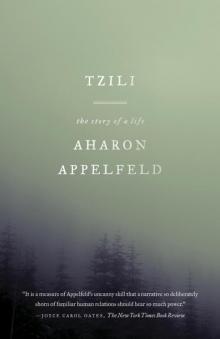 Tzili
Tzili The Conversion
The Conversion The Iron Tracks
The Iron Tracks All Whom I Have Loved
All Whom I Have Loved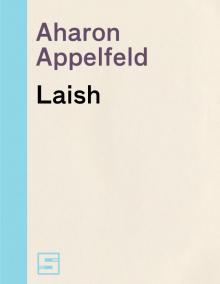 Laish
Laish The Retreat
The Retreat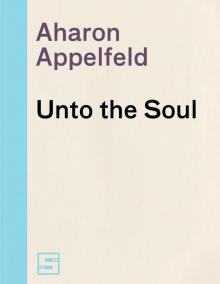 Unto the Soul
Unto the Soul Blooms of Darkness
Blooms of Darkness The Man Who Never Stopped Sleeping
The Man Who Never Stopped Sleeping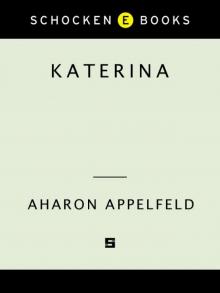 Katerina
Katerina Until the Dawn's Light
Until the Dawn's Light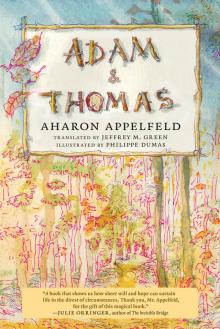 Adam and Thomas
Adam and Thomas Suddenly, Love
Suddenly, Love